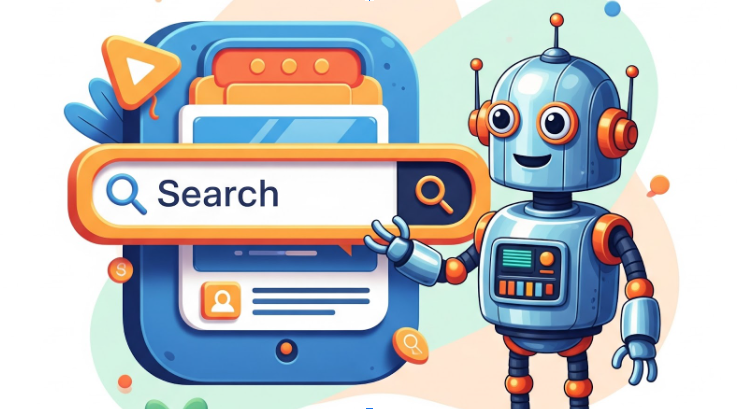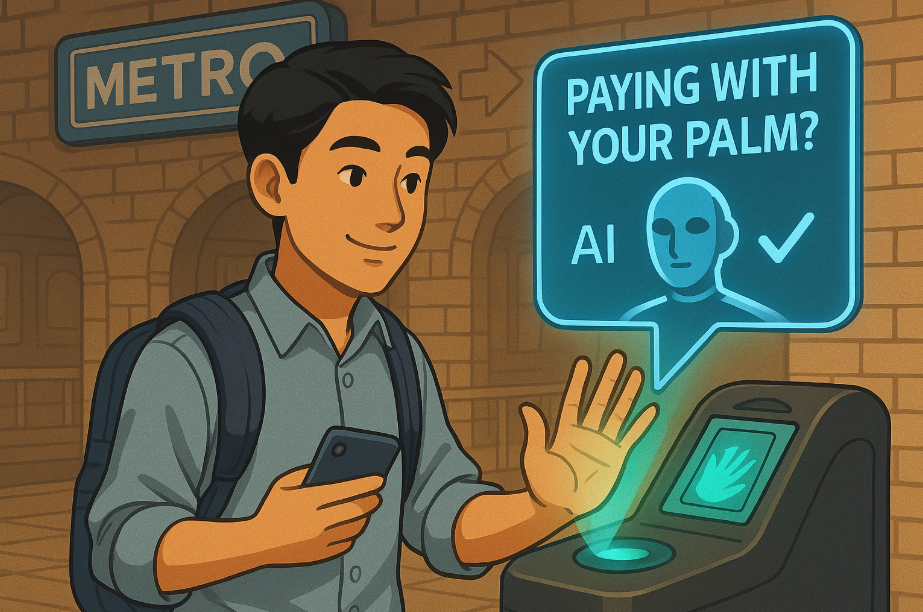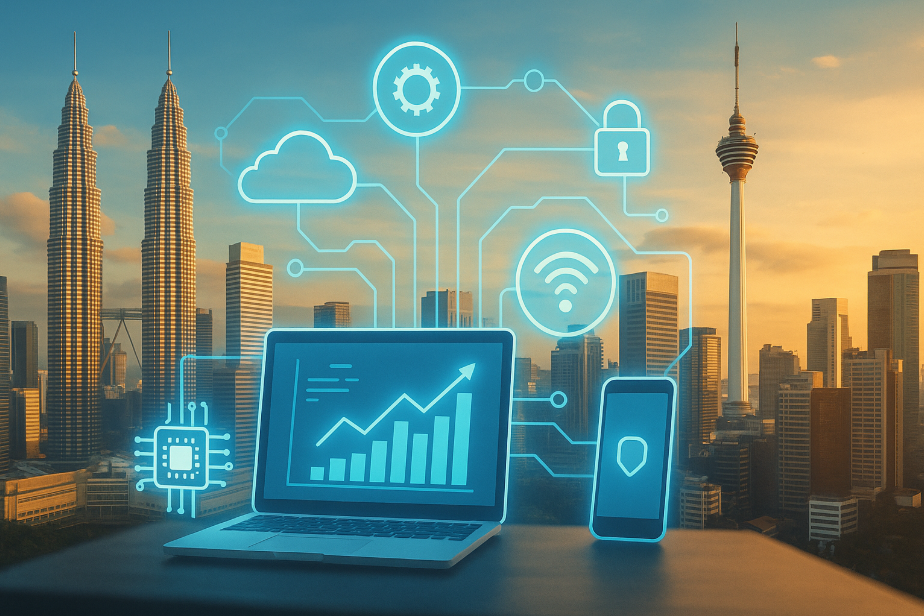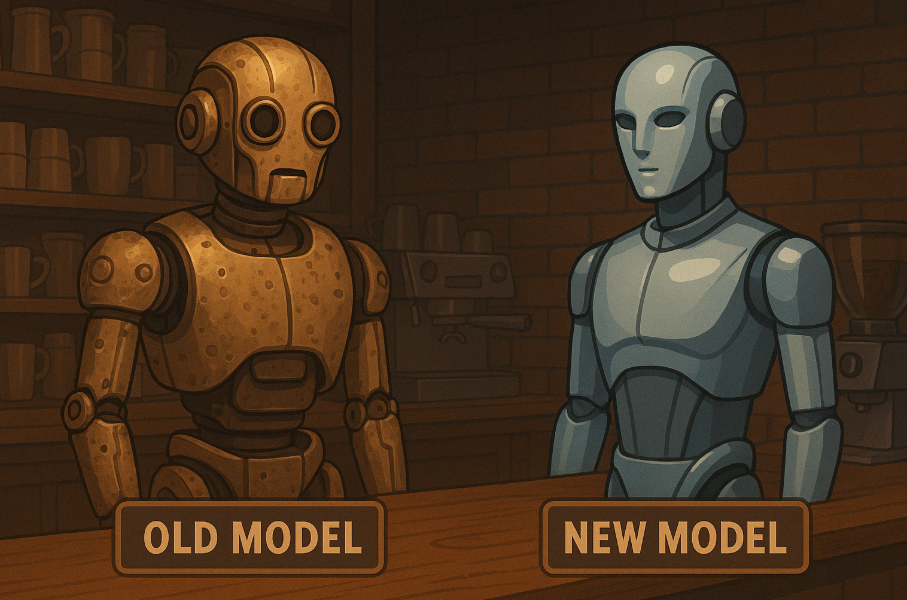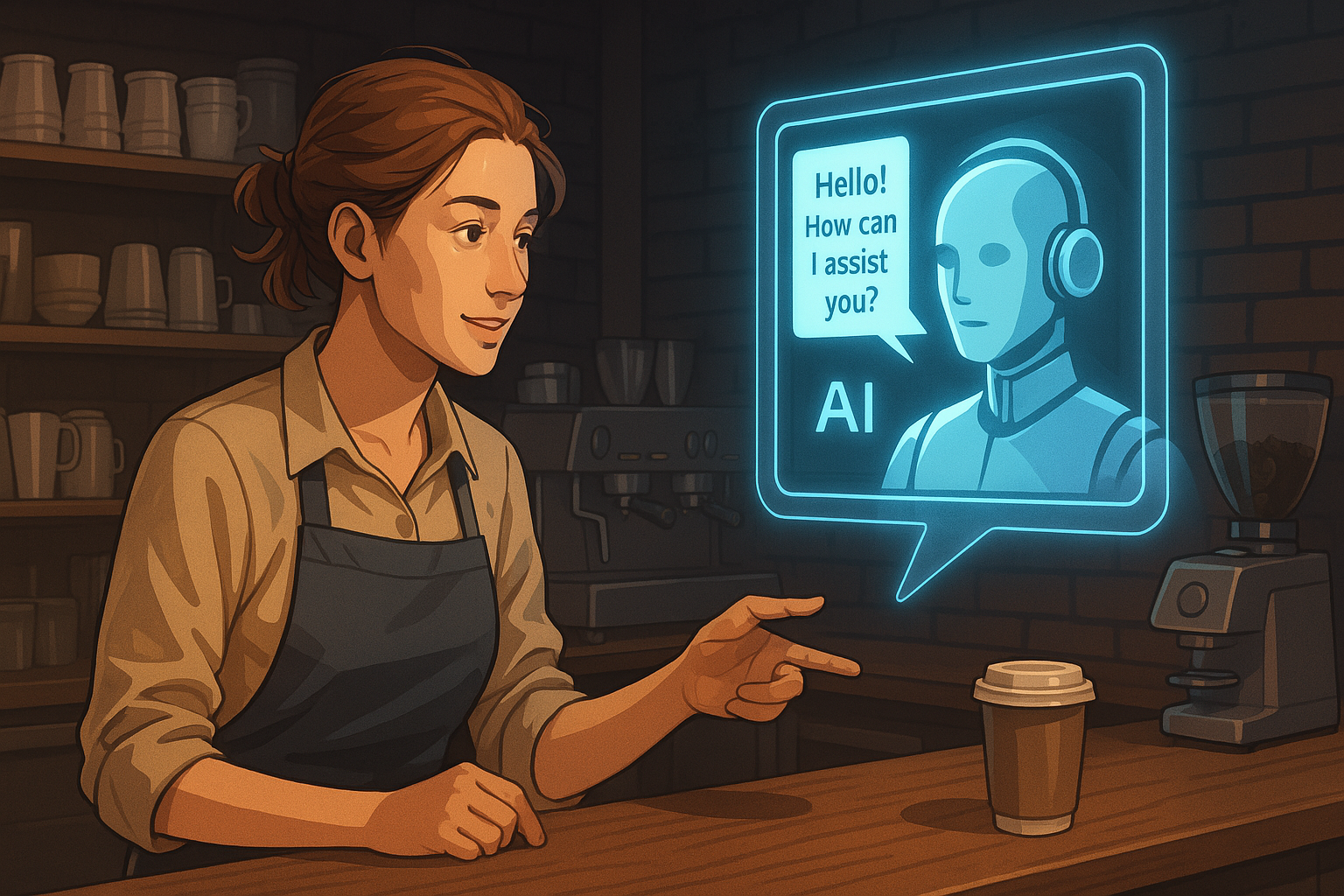Chatbots vs. AI Agents
In the bustling digital marketplace, businesses constantly seek innovative tools to enhance customer interactions. Two prominent contenders have emerged: chatbots and AI agents. At a glance, they might seem like twins separated at birth, but a closer inspection reveals distinct personalities and capabilities. Picture the following scenarios:
Scenario: The Coffee Shop
Imagine stepping into your favorite coffee shop. You approach the counter, and instead of a barista, there’s a touch screen.
You: “I’d like a medium latte with almond milk.”
Chatbot Screen: “Please select from the following options: [Small, Medium, Large] [Whole Milk, Skim Milk, Soy Milk].”
You navigate through the options, feeling the absence of the personal touch.
Now, envision a different scenario. As you approach, a robotic assistant greets you.
AI Agent: “Good morning! Your usual medium latte with almond milk?”
You: “Yes, please! And perhaps a blueberry muffin.”
AI Agent: “Excellent choice. That’ll be $5.50. Would you like to pay with your usual card?”
Here, the AI agent recalls your preferences, making the interaction seamless and personalized.
Decoding the Digital Duo
Chatbots are akin to those touch screens—efficient but limited to predefined scripts. They excel at handling straightforward tasks like answering FAQs or guiding users through basic processes. However, their rigidity becomes evident when faced with unexpected queries.
AI Agents, on the other hand, are the evolved counterparts. They harness advanced algorithms and machine learning to understand context, learn from interactions, and make autonomous decisions. This enables them to manage complex tasks, provide personalized responses, and adapt to dynamic situations without human intervention.
Key Differences
- Complexity of Tasks: Chatbots handle simple, repetitive tasks, whereas AI agents can manage multifaceted processes and make decisions based on real-time data.
- Learning Ability: Unlike chatbots, which operate on set scripts, AI agents learn from past interactions, improving their responses and actions over time.
- Integration: AI agents can seamlessly integrate with various systems, accessing and processing information across platforms to provide comprehensive solutions.
Real-World Applications
- Customer Support: Companies like Ada have transitioned from basic chatbots to AI agents to offer more personalized and efficient customer service experiences. Ada
- E-commerce: AI agents in online retail can analyze user behavior to provide tailored product recommendations, enhancing user engagement and sales.
- Healthcare: AI agents assist in patient management by scheduling appointments, sending medication reminders, and providing preliminary medical advice based on patient history. BotMojo
The Verdict
While chatbots serve as efficient tools for handling simple, repetitive tasks, AI agents offer a more dynamic and personalized approach, capable of managing complex interactions and learning from them. For businesses aiming to elevate their customer experience, understanding and leveraging the strengths of each can be a game-changer. Get in touch with the team at Ocunapse, we can help you solve the equation of how to incorporate AI Agents into your business.

